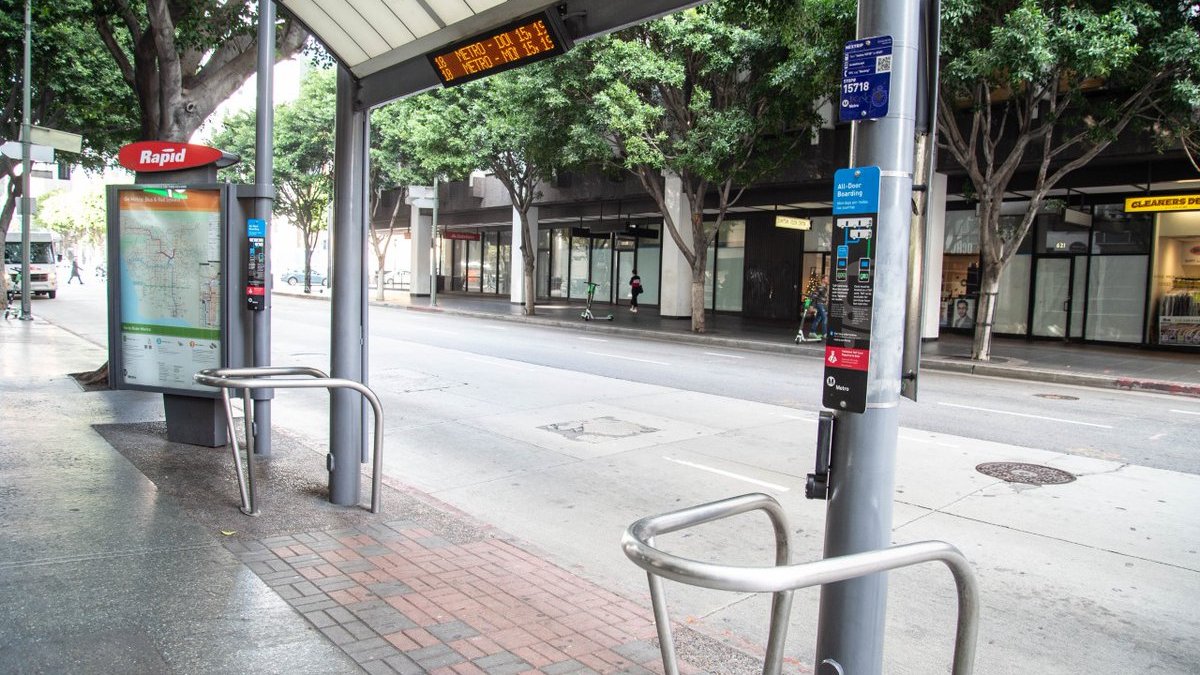Los Angeles has long been America’s most car-centric city, but now a movement is underway to change the way Los Angeles moves.
When LA city residents head to the polls on Super Tuesday, they will have an option to vote on Measure HLA, an initiative that would require the city to redesign streets to be safer for pedestrian and bicyclists while holding city officials accountable.
What would Measure HLA do?
Measure HLA, also referred to as Healthy Streets LA, would require the city of LA to implement Mobility Plan 2035, which was adopted a decade ago to encourage the creation of more bike lanes and wider sidewalks but hasn’t yielded a lot of results.
The ballot measure would mandate the city to implement Mobility Plan projects, such as adding protected bike lanes whenever the city improves roadways.
If approved, Measure HLA would require the city to implement a street modification as laid out in the Mobility Plan whenever there’s an improvement to at least one-eight mile stretch of a road or sidewalk,
Proponents of the initiative say ballot measure would force city officials to make sure streets are repaved for buses, pedestrians and bicyclists.
“Today in Los Angeles, in general, most people only feel safe driving a car, and even that isn’t that safe because car crashes have a huge toll,” said Michael Schneider, the founder of advocacy group Streets for All. “It’s about giving Angelinos options.”
Proponents also argue that Measure HLA would keep pedestrians and public transit users safe as the city of LA had more traffic deaths than homicides in 2023.
Why opponents want voters to say “no” to Measure HLA
Opposition to the ballot measure is being led by the Los Angeles City Firefighters union, which argues reconfigured streets with fewer traffic lanes will hamper 911 responses.
“There is an issue with public safety it will delay the response time for the members that I represent,” Freddy Escobar, President, United Firefighters of Los Angeles
The union also cites a report by Matt Szabo, the City Administrative Officer to argue Measure HLA would be costly to the city, requiring $3.1 billion unfunded liability.
“You would be adding a mandate without the funds to achieve that,” Szabo said during a city council meeting on Feb. 16.
Proponents of Measure HLA say Szabo’s estimations are overblown.
